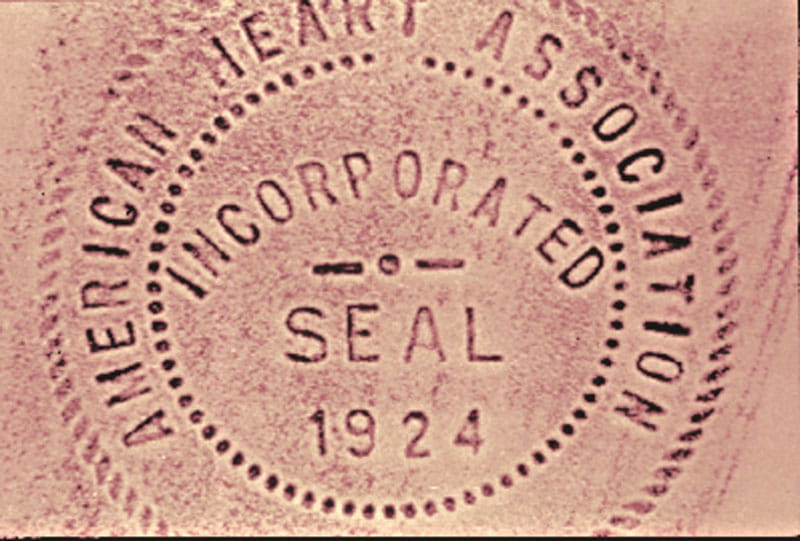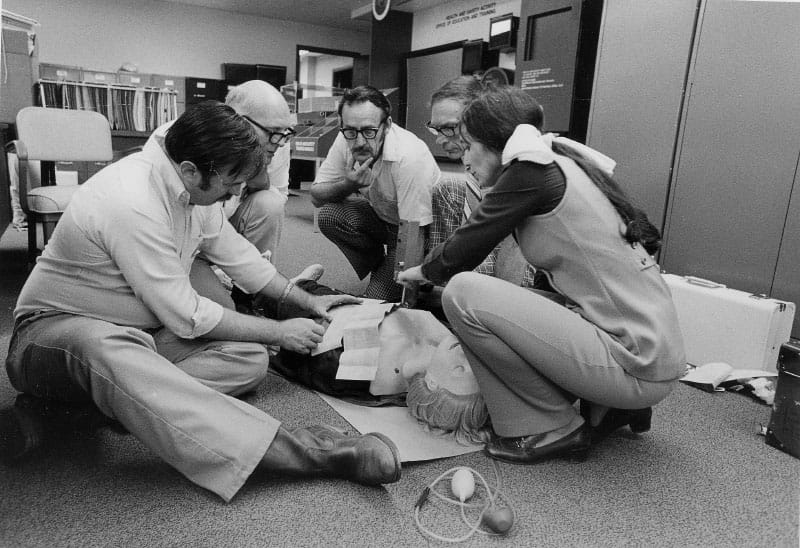
When it comes to health, people usually have a loose understanding of what’s best for them.
For example, we know that diet and exercise are important. Sleep is important. And so is quitting smoking. We may not always remember what our ideal weight, cholesterol, blood pressure, and blood sugar levels are, but we know they are important.
You know you should get a checkup every year. You also know that bad things can happen, especially if it runs in your family. Even the thought of a heart attack is terrifying, but you probably know at least one person who has survived. You probably know someone who has survived without open-heart surgery. They probably had a stent or two put in. They might have been out of the hospital the next day.
Hopefully, you know how to spot the signs of a stroke quickly — meaning if you see someone’s head drooping, arms weakening or speech slurring — it’s time to call 911.
We’re all familiar with CPR and have probably learned how to do it as a requirement for graduating from high school or getting a job. Learning CPR probably also meant learning about an AED, a little box that can deliver an electric shock to the heart to get it going again.
We could take this even further, but let’s go in the opposite direction.
Let’s look back 10, 25, 50, 75 years. 100 According to one of the leading cardiologists of the 20th century, there was “an era of almost incredible ignorance about heart disease.”Number 21st Century, Dr. Paul Dudley White.
He wasn’t talking about the ignorance of the general public: he was talking about himself and his peers, who were largely powerless to prevent, much less treat, heart disease.
That’s why they decided to do something about it.
On June 10, 1924, Dr. White and five other physicians signed papers officially forming the American Heart Association. They hoped that by working together they could speed the discovery of life-saving solutions.

Shortly after World War II, the organization morphed into something bigger and better. Instead of working with and for physicians, the AHA restructured into a public health organization. The AHA began raising funds and using them for research, advocacy, and other causes.
Today, the AHA wears many hats: a leader, a meeting organizer, a driving force for the greater good. But what we collectively call “the AHA” is really the sum of its constituent parts: 32 million volunteers, donors, and supporters. This includes generous businesses, philanthropic foundations, peer health organizations, researchers, physicians, advocates, survivors, and more.
Probably the best way to measure progress between 1924 and 2024 is by looking at cardiovascular disease mortality. Cardiovascular disease mortality has been cut by almost half. That’s an incredible improvement. Millions of lives have been saved and improved. Every yearThat’s the direct benefit. Now expand that circle to include others whose lives are enriched by their presence: their children, parents, grandparents, friends, neighbors, co-workers.
While the AHA cannot claim credit for all advancements, much of what is known about the heart and brain originated in some way with the organization. And now, in celebration of its 100th anniversary,Number The AHA will celebrate its birthdays throughout 2024.
In this installment, we shine a spotlight on AHA founders and other dynamic individuals, including:
- Eugene Braunwald literally wrote the book on heart disease. of Textbook of cardiology.
- Nanette Wenger is a pioneering cardiologist, teacher and mentor who understood that heart disease does not just affect men and was one of the first to focus on heart disease in women.
- Edward Cooper was an early proponent of the link between stroke and heart disease, and became the first black tenured professor at the nation’s oldest medical school and later the first black president of the AHA.
This is an opportunity to recognize the more than $5.7 billion the AHA has invested in cardiovascular research, the largest investment of any organization outside the federal government.
These investments began in 1948. Progress was rapid, and not surprisingly: after all, the land was like an untouched field, and the soil was being cultivated by scientists trained by the first generation of AHA scientists.
Just look at the list of groundbreaking achievements the AHA supported in the 1950s and 1960s alone.
- The first drug to lower blood pressure, groundbreaking research showing that high blood pressure can shorten life, and the first drug to lower cholesterol.
- The first successful artificial heart valve replacement and pioneering advances in microsurgery that led to today’s minimally invasive procedures that can end a heart attack by removing a blocked coronary artery with a stent, and a similar procedure that can end a stroke by removing a blood clot in a brain artery.
- With the arrival of the first external defibrillator, and then the first portable external defibrillator, CPR became universally accepted as a way to save a life, and eventually the technique became widely taught.
- The first successful battery-powered wearable pacemakers have become commonplace, with these devices now routinely implanted to keep the heart beating at a normal rate and rhythm.
- After first seeing a connection between the fats we eat and blood cholesterol, the AHA began developing dietary guidelines to encourage Americans to eat healthily. (In 1973, the AHA published its first cookbook, which is still in print today and has sold over 3 million copies.)
- It was the first scientific statement on smoking and heart disease and a precursor to the Surgeon General’s landmark report on smoking and health.
This year is also a great opportunity for us to explain the depth and breadth of how the AHA works to improve and extend your lives.

In some cases, like CPR classes, the impact is obvious.
Sometimes it’s subtle, like working to ensure there’s a safe place to walk.
And sometimes it means big things, like upholding federal laws that require all Americans to have access to health care.
actually, all Americans is a typographic embellishment often used to highlight the organization’s commitment to ensuring that all people, everywhere, have the opportunity to enjoy longer, healthier lives.
The AHA has been working toward the concept of health equity since at least 1969, when it created a task force to study why some diseases, such as hypertension in black people, disproportionately affect certain groups.
This led the organization to develop new programs and priorities, and established a precedent that is still upheld today: The AHA was addressing the “social determinants of health” long before the COVID-19 pandemic exposed these disparities. Seeing this, the organization doubled down on attacking these barriers.
You can see the AHA’s purpose from a different perspective. all American.
It also means that the organization you. Improvements and Extensions your life.

The best way to really understand that is to go back to what I said at the beginning of this story: diet, exercise, sleep, quitting smoking, weight, cholesterol, blood pressure, and blood sugar control.
AHA-funded research has found that these are key factors in preventing heart disease and stroke. Mastering them will greatly increase your chances of living a longer, healthier life. That’s why they’re called the Essential Eight.
The organization disseminates information in a variety of ways to different audiences, including the general public and scientific and medical professionals. Outreach to medical professionals aims to ensure that newly discovered scientific discoveries make their way from published papers to hospitals and clinics.
The AHA, alone or in partnership with other organizations, is heavily involved in developing treatment and prevention “guidelines” for cardiovascular care. A simple example: A common blood pressure goal is 120/80.
The AHA offers a variety of programs to help hospitals and clinics follow the guidelines, and it is also the organization that certifies care centers that are best equipped to treat heart attacks and strokes.

Paramedics know this because part of the chain of events that begins with the 911 call is to transport the patient to an accredited facility when possible, and it’s also part of the paramedics sharing information on the way to the hospital.
This communication reduces “door-to-needle time,” which seems to be recording the time it takes from when a patient arrives at the hospital until they receive certain potentially life-saving medications or procedures. The urgency is there for a few reasons: the sooner they are administered, the more effective they are (“time lost is brain lost” is a common phrase in stroke treatment), and the guidelines make clear that some of these medications can only be administered within a certain time window from the onset of symptoms.
Ensuring that patients get the care they need, when they need it, is a complex issue. It sometimes requires developing public policy. The AHA does that at every level, from local to federal.
Needless to say, your organization’s influence is felt all around you.
As the AHA begins its second century, our leaders look to the future and are committed to improving the health and hope of all people, everywhere.
As American Heart Association CEO Nancy Brown likes to say, “Our future is about improving your future.”
how?
More cutting-edge research. New technologies. More innovative approaches that don’t exist yet.
Dr. Joseph Wu, president of AHA Volunteer, is one of those shaping the future. He runs the Stanford Heart and Vascular Institute, and one of his projects is studying the effects of weightlessness on the heart in preparation for the day when space travel becomes commonplace.
In his speech at the Scientific Sessions, Wu reflected on what’s to come in that very spirit.
“Who knows. In 100 years, this great organization may be celebrating its 200th anniversary on Mars.”



